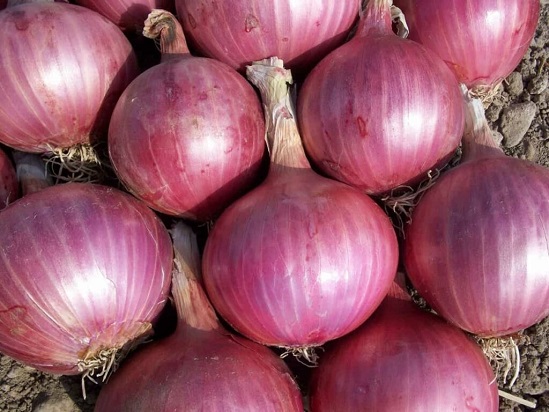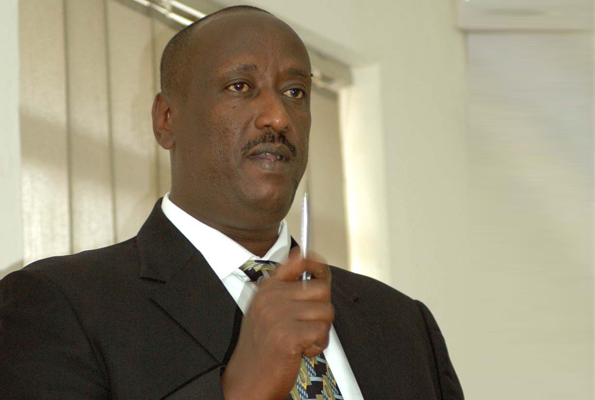Uganda imports onions from Kenya
By Dr. Apollo Buregyeya
Sixty percent of the onions and Irish potatoes consumed in Uganda come from Kenya. So, do most of the oranges, tangerines, mangoes, pears, and apples.
Our markets are flooded with fruits grown in a drier, tougher terrain, while Uganda, one of the most fertile nations on the continent, has become a hungry neighbor at the dinner table. It is no longer unusual to find rice from Tanzania, powdered milk from Europe, or tomatoes trucked in from Nairobi. What should concern us is not just the import bill. It is the story behind it.
The rural Uganda, long known as the bedrock of national nourishment, is now being fed by towns. Trucks from Kampala supply rice, sugar, tomatoes, and maize flour to rural markets. This reversal is not a logistical accident. It is the consequence of decades of policy neglect, infrastructural decay, and misaligned priorities. We are witnessing the collapse of food sovereignty in real time.
- What is Food Sovereignty?
Food sovereignty is the right of people to control their food systems. It is about what they grow, how they grow it, and for whom. It is different from food security, which simply asks whether people are eating. A nation can have food security through imports, but it only has food sovereignty when it can feed itself with dignity and on its own terms.
Uganda has lost that power.
- The Kenyan Contrast
Kenya’s agricultural edge lies in one word: irrigation. Through strategic state-led investments in water infrastructure, Kenya has built year-round farming capacity in areas like Galana-Kulalu and Mwea-Tebere. Even with harsher climatic conditions, Kenyan farmers produce onions, tomatoes, citrus fruits, and maize all year round. They are feeding not just themselves but regional neighbors too.
Uganda, by contrast, continues to rely overwhelmingly on rain-fed agriculture. Less than 2 percent of our arable land is irrigated. This means farmers are at the mercy of shifting weather patterns. Yet no national irrigation backbone has been rolled out at scale. Our soils are rich, but they remain thirsty.
- The Colonial Logic Still Rules
Uganda’s agriculture policy remains trapped in a colonial mindset. We produce what we do not eat and import what we should grow. Coffee, tea, tobacco, and flowers dominate our agricultural strategy, not because they feed Ugandans, but because they bring in foreign exchange. Government subsidies and incentives continue to favor crops destined for European shelves, while onions and millet remain marginal. We export what we can’t consume and import what we have no excuse not to grow.
But the deeper irony is in what we lose when we chase these exports.
Take coffee, Uganda’s flagship export crop. According to The Financial Times and ITC, in a £2.50 cup of coffee sold in the UK, the actual coffee bean accounts for just £0.10, a mere 4 percent of the total value. The rest goes to shop rent, staff wages, tax, profit, branding, packaging, and logistics. And of that £0.10, the grower earns just 1 penny. That is the full extent of Uganda’s reward for being one of the world’s top coffee producers.
We are busy celebrating increased coffee tonnage while ignoring the 96 percent of the value chain we do not own. Germany, which grows no coffee, earns more from the coffee industry than the entire African continent. Why? Because they built systems.
They built processing capacity, marketing power, retail networks, consumption culture, and the infrastructure that supports value addition. Even if Germany had plantations, it would still dominate the value chain. The wealth is not in the bean. It is in the brew, and in who drinks it.
The real value is in brewing and consumption, two stages we can’t own until we have transformed the quality of human beings we have. For now, we are “beingi ba busha, like ants on a fallen tree in the forest. We are always in motion. Restless, visible, endlessly busy. But it is motion without power, movement without meaning. Like ants, we cannot plant a tree, let alone grow a forest. What we give is activity, not progress. Performance, not regeneration. And it doesn’t matter how many reforms we announce.
That is the tragedy of Uganda’s cash crop obsession. We cheer the harvest while ignoring the system. We have no control over branding, pricing, or consumption. We are exporters of raw things and importers of finished stories.
Ethiopia offers a counter-narrative. It consumes nearly 50 percent of its coffee domestically, building resilience for farmers against global price shocks. It sustains a local industry, a consumption culture, and a sense of pride. Uganda, by contrast, exports over 90 percent of its coffee, disconnected from the very people who grow it.
So yes, we are exporting. But exporting what? And to whose benefit?
Until Uganda can drink what it grows, wear what it weaves, and build with what it mines, we will remain trapped. We are earnest producers of raw value in a world that rewards refined systems.
- Why Are Villages Hungry?
Several dynamics explain the shocking inversion where cities now feed the countryside:
a). Land fragmentation has limited meaningful production. Much of Uganda’s land is either underutilized, locked in inheritance disputes, or repurposed for speculative real estate.
b). Youth flight from agriculture has left the village without labor. The informal urban economy offers faster returns than farming, so young people abandon hoes for handlebars.
c). Extension services have collapsed. Farmers no longer receive timely training, pest control support, or modern practices. Seeds are handed out, but no one teaches how to plant or preserve.
d). Middlemen dominate markets. From seeds to sales, food systems are controlled by urban traders who now transport inputs and finished food into villages, converting farmers into consumers.
- Empty Programs, Full Warehouses
Uganda has not lacked agricultural programs. We have had Entandikwa, NAADS, Operation Wealth Creation, and now the Parish Development Model. But these efforts suffer from a fatal flaw. They confuse activity for strategy. They distribute inputs without infrastructure. They speak of transformation while ignoring storage, roads, irrigation, and market access. We treat agriculture like a charitable gesture rather than a national production system.
If we had truly invested in the rural economy, we would not be importing mangoes that grow freely in our own backyards. We would not be dependent on Kenyan onions while our own farmers watch their gardens dry up for lack of water.
- What Must Be Done
Uganda’s return to food sovereignty will not come from another pilot project or donor-funded distribution scheme. It will come from state-driven structural reform. We must:
a). Launch a national irrigation program to de-risk food production.
b). Rebuild rural extension services and support agroecological education.
c). Protect arable land from speculative use and promote community-based production.
d). Shift public spending to prioritize domestic food crops and indigenous nutrition.
e). Reinforce farmer cooperatives to counter urban trader monopolies.
f). Treat food systems as national security infrastructure, not just seasonal projects
- It’s our Right to Feed Ourselves
Uganda is not poor. We are poorly organized. We are fertile, but fragile. We are capable, but disempowered. Every imported crate of tomatoes is a symbol of lost sovereignty. Every village that waits for city trucks is a mirror of our policy failure.
Food is not just about survival. It is about freedom. A nation that cannot feed itself cannot govern itself. It is time we stop hiding behind exports and start investing in our people’s nourishment. The soil is ready. The rain still falls. The question is, do we have the will?
The author is a civil engineer, educator, and industrial strategist. His latest books include “Decolonising Africa’s Infrastructure” and “The Wisdom Degree.”





